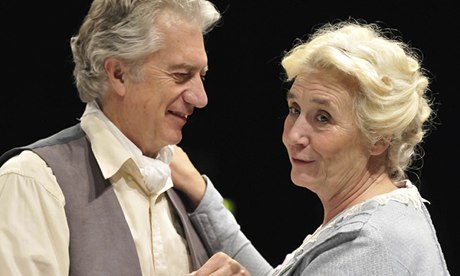
Under David Thacker's tenure, the Octagon has become the home of heavyweight American drama. Yet you suspect that his productions of Miller, Williams and Albee were merely gateway drugs that would sooner or later lead towards the hard stuff: Eugene O'Neill's masterful study of sickness and addiction, which was so closely based on his own family that he forbade any performance until 25 years after his death.
Set over a single day in summer 1912, O'Neill presents a fleeting moment of togetherness for the Irish American Tyrone family, between rehab spells and sanatorium visits. Mother Mary has just returned from a course of treatment for morphine addiction; youngest son Edmund has tuberculosis and is headed the other way. Father James, a fading theatrical idol, and elder son James Jr, are so wedded to the bottle as to be beyond saving.
As a combustible combination of hard drugs, hard drink and hard luck stories, O'Neill's drama has everything except brevity. But Thacker's production generates great momentum, partly because the first two acts are paced at quite a lick, but also because he presents the family's theatricalism as a kind of curse.
Brian Protheroe's miserly, dictatorial James is full of the corrosive self-loathing of an artist who abandoned Shakespeare in pursuit of a quick buck. Margot Leicester's fragile Mary has been undermined by a life spent in second-rate hotel rooms, and cuts to the quick with the accusation that her husband knows how to act everywhere except at home.
Yet Leicester's heart-rending performance is based on the keen observation that addicts, trapped in an unending cycle of furtiveness and denial, are the greatest actors of all. Mawgan Gyles and Kieran Hill are no less impressive as the dissolute sons. O'Neill's play is a long, sometimes gruelling journey; though without it there would be no Williams, no Albee and far fewer dramatically fruitful trips to Bolton.
• Did you catch this show – or any other recently? Tell us about it using #gdnreview

